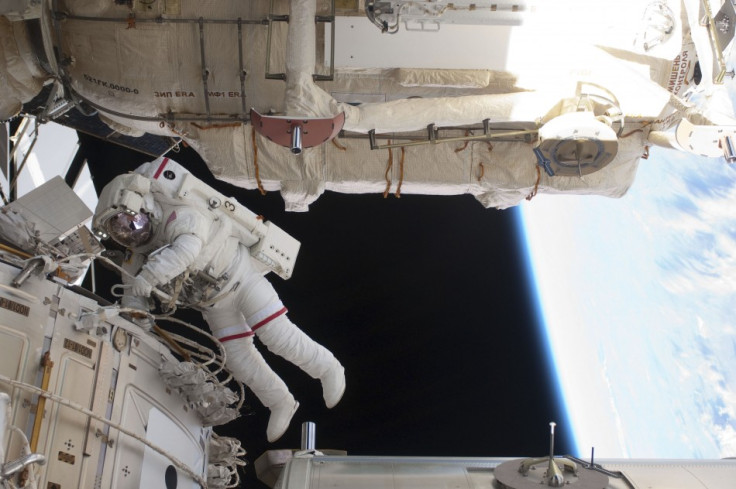Astronauts' Eye Damage May Risk Missions to Mars

Astronauts who spend more than a month in space develop abnormalities in their brains and eyes, jeopardising future plans for longer space missions to Mars and beyond.
Research published in the journal Radiology analysed magnetic resonance imaging (MRI) scans of 27 astronauts who had spent an average of 108 days in space either on shuttle missions or aboard the International Space Station (ISS).
The results found that the astronauts who spent more than a month in space had deformities in their eyeballs, optic nerves and pituitary glands. These are similar complications which occur in a rare syndrome caused by unexplained pressure to the brain known as intracranial hypertension.
The pressure causes swelling of the juncture between the optic nerve and the eyeball which can result in visual impairment.
The MRI scans showed seven of 27 astronauts had a flattening of the back of one or both of their eyes, making the eyeball shorter. This made the astronauts more long-sighted, which in some cases had the effect of reducing or correcting their short-sightedness.
The impact on the astronaut's eyes because of space travel could put at risk any chance of future planned missions to Mars. Shuttle missions typically last a few weeks, while shifts at the ISS can last more than six months. A mission to take astronauts to the Red Planet would be likely to take more than a year.
"Microgravity-induced intracranial hypertension represents a hypothetical risk factor and a potential limitation to long-duration space travel," said lead author Larry Kramer, professor of diagnostic and interventional imaging at the University of Texas Medical School at Houston.
"The MRI findings revealed various combinations of abnormalities."
With astronauts already experiencing a loss of bone density and muscle wastage caused by extended periods of weightlessness in space, the latest data about health risks will add to concerns.
Four of the astronauts had swelling around the optic nerve, which could affect the transmission of signals from the eye to the brain and, in the longer term, cause nerve fibres to die off.
Nasa said it would continue to monitor the situation.
© Copyright IBTimes 2025. All rights reserved.





















